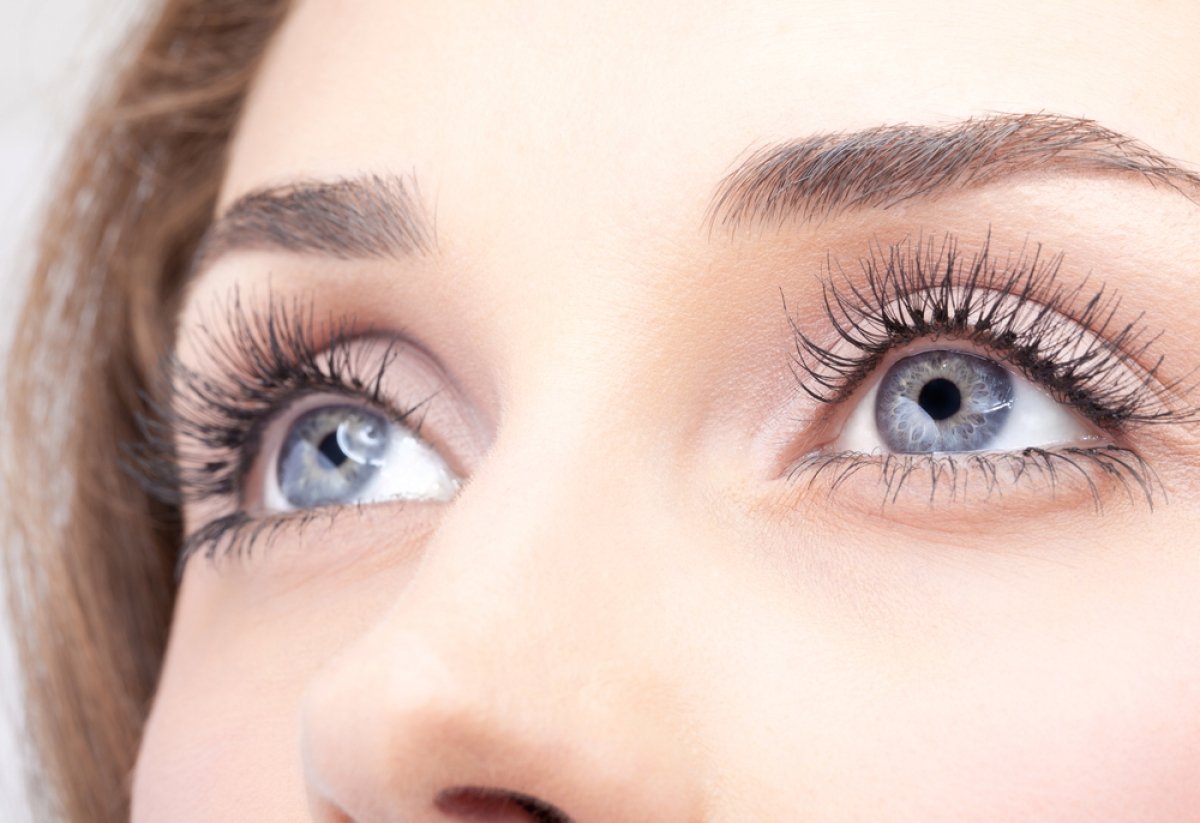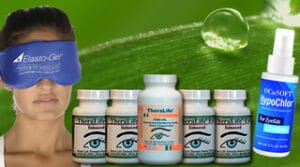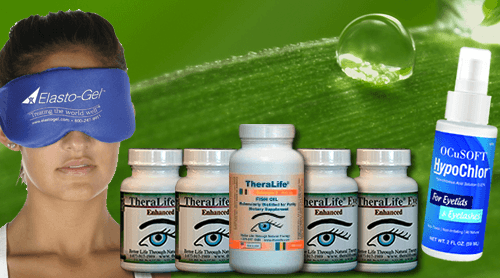Uveitis Natural Treatment
Uveitis is an inflammatory eye disorder that can cause severe vision impairment if not treated promptly and adequately. It occurs when the uvea, a part of the eye, becomes inflamed due to various causes such as infection or autoimmune disease.
This article provides information on natural uveitis treatment options focusing on holistic approaches. This article explores effective natural treatments for controlling and managing uveitis symptoms. We will explore the potential benefits of using dietary supplements, herbal medicines, homeopathy, and other alternative therapies to treat uveitis patients.
Additionally, we will discuss lifestyle modifications that may help reduce inflammation. The discussion also includes evidence-based research findings pertinent to using these treatments in clinical practice.
condition.
Add To Cart
Causes Of Uveitis
Uveitis is an autoimmune disease of the eye that refers to any of several intraocular inflammatory conditions.
Uveitis, an inflammatory eye disease, is a condition that affects millions of people across the world. It has existed since ancient times and is a significant cause of vision loss today.
The exact causes of uveitis can vary by individual and can often be hard to pinpoint. There are many potential triggers of uveitis, ranging from physical trauma and infection to psychological stressors. Generally speaking; however, some common triggers include diseases like rheumatoid arthritis and psoriasis, as well as certain medications like non-steroidal anti-inflammatory drugs (NSAIDs).
In addition, exposure to toxins such as cigarette smoke or industrial chemicals can also bring on symptoms associated with uveitis. Perhaps most important for those seeking natural treatments for their condition are the potential psychological stressors linked to uveitis flare-ups. These may include emotional traumas such as grief or depression or periods of chronic stress due to work or home life, which can all lead to episodes of inflammation in the eyes.
It is important for anyone suffering from this condition to consult with medical professionals specialized in treating it before attempting any self-treatment regimen. A licensed ophthalmologist is best suited to help identify possible underlying causes behind your particular case. You can then begin addressing them through diet changes or other lifestyle adjustments to manage your symptoms naturally.
Uveitis Natural Treatment – Oral Therapy
Uveitis is an autoimmune disease.
Autoimmune disorders involve the body’s immune system mistakenly reacting to the tissues in one’s own body. They are all chronic inflammatory diseases, which often progress to more complex, systemic disorders that can affect other tissues and organs in the body. In the correct links, we will look at these disorders to better understand how the ocular surface reacts to the inflammatory cascade, what the conventional clinical management practices are, and how TheraLife® can help.
How TheraLife Autoimmune help with Uveitis Natural Treatment
TheraLife Eye Autoimmune formula targets to help you reduce inflammation, relieve dry eyes naturally, and prevent a uveitis recurrence. It contains vitamins, minerals, and herbal extracts in the right combination for uveitis management.
Theralife is your natural alternative to managing uveitis.
Dietary Supplements For Uveitis Natural Treatment
Uveitis can be managed and treated in many ways, including dietary supplements. When choosing a supplement to help manage the symptoms of uveitis, it is essential to consider both effectiveness and safety.
Dietary supplements may include vitamins, minerals, amino acids, probiotics, antioxidants, omega-3 fatty acids, and bioflavonoids.
Vitamins are a vital part of a healthy diet and play an essential role in maintaining good health. Specific vitamins with immune-boosting properties may reduce inflammation associated with uveitis. These vitamins include Vitamin C, Vitamin B6, Vitamin E, and Niacinamide (B3).
Minerals such as zinc and magnesium may also aid in reducing inflammation associated with uveitis.
Bioflavonoids are naturally occurring plant compounds that provide antioxidant protection against free radical damage caused by oxidative stress, which is a cause of some cases of uveitis. Bioflavonoids found in herbs such as turmeric, green tea extract, and ginger root may help protect the eyes from further injury while aiding in symptom relief due to their anti-inflammatory effects. Additionally, they support eye health and improve overall vision clarity when taken regularly over time.
The use of dietary supplements for managing uveitis requires careful consideration since there is no one-size-fits-all treatment or management plan approach. Speaking with your healthcare provider before using any natural remedy or supplement is essential, as some ingredients could interact negatively with existing medications or worsen underlying conditions or allergies. Furthermore, discuss dosage with your doctor before beginning supplementation, as too much of certain nutrients can be harmful depending on individual needs and medical history.
With proper guidance from your healthcare professional, you can work together to develop an effective holistic solution for treating your uveitis naturally.
Herbal Medicines For Uveitis Natural Treatment
Herbal medicines are a popular choice among those seeking natural treatment for uveitis due to their ability to provide immune boosting and mind-body relief. Herbs have various forms, such as teas, tinctures, extracts, inhalations, or topical applications. The selection of herbs depends on the individual’s condition and desired outcome; however, commonly used herbs may include butea monosperma, chamomile flowers, Curcuma longa (turmeric), echinacea purpura, eyebright herb, and ginkgo biloba.
Butea monosperma is an Ayurvedic herb used traditionally for treating inflammation and helps improve vision by improving eye circulation.
Chamomile flower is known for its calming effects on the nervous system, making it beneficial for reducing stress associated with chronic conditions like uveitis.
Curcuma longa (turmeric) contains antioxidant properties that help reduce pain symptoms while aiding digestion, which may support overall health.
Echinacea purpurea is an anti-inflammatory agent helping reduce swelling around the eyes when applied topically or consumed internally through teas or tinctures.
Eyebright herb soothes irritated tissues and encourages the healing of inflamed mucous membranes often found in cases of eye disorders, including uveitis.
Finally, Ginkgo biloba helps increase blood flow to vessels surrounding the eyeball resulting in improved visual acuity while protecting against free radicals, which may aid in the prevention of certain types of ocular disease associated with uveitis.
In exploring other options available for the natural treatment of uveitis, we turn our attention towards homeopathy.
condition.
Add To Cart
Homeopathy For Uveitis Natural Treatment
Uveitis is an inflammation of the uvea, the middle layers of tissue in the eye. It can cause several symptoms, including redness, swelling, and blurred vision.
Homeopathy is an alternative medicine used to treat many different medical conditions for over two centuries. In recent years, it has become increasingly popular as a natural treatment option for those suffering from uveitis.
When considering homeopathic treatments for uveitis, one must consider their individual needs and lifestyle. Certain activities, such as eye exercises and stress management techniques, may be beneficial in relieving some of the symptoms associated with this condition.
Additionally, several herbal remedies help reduce inflammation and promote healing within the eyes:
1. Eyebright – Used to strengthen blood vessels around the eyes while also reducing irritation
2. Goldenseal – Known to possess anti-inflammatory properties as well as stimulate immune response
3. Licorice Root – A powerful antioxidant said to reduce swelling and improve overall circulation
4. Bilberry Extract – Contains anthocyanins believed to enhance vision health
In addition to these herbs, other supplements are available on the market that may relieve uveitis symptoms. Many people find success using homeopathy by exploring its various approaches until they find what works best for them.
With proper implementation, homeopathy can bring about lasting improvements in physical and mental well-being. As research continues to explore further benefits of natural treatments for uveitis, more options will continue to become available for those seeking holistic solutions without resorting to traditional medications or surgery tailored to each patient’s individual needs.
Acupuncture For Uveitis Natural Treatment
Acupuncture is another alternative therapy that can treat uveitis. Acupuncture involves the insertion of tiny, thin needles into specific points of the body to stimulate energy flow and balance out any imbalances in the body. Its goal is to reduce inflammation and pain associated with uveitis. Studies have found that acupuncture can improve visual acuity, decrease intraocular pressure, and even help with symptoms such as eye fatigue or dry eyes.
Detoxification therapies may also be beneficial for treating uveitis naturally. Such treatments remove toxins from the body that could trigger an immune response which leads to inflammatory reactions like uveitis. Detoxification therapies include fasting and dietary changes, herbal remedies, and sauna treatments. Research suggests that these detoxification methods relieve chronic inflammation by reducing levels of systemic inflammation in the body.
Finally, yoga practice has become a popular natural treatment option for those suffering from uveitis due to its ability to reduce stress, tension, anxiety, and depression while increasing overall well-being. Yoga poses designed specifically for people dealing with ocular conditions can help ease muscle tension around the eyes and improve circulation throughout the area, both of which can contribute to relieving some of the symptoms associated with uveitis or prevent flare-ups from occurring regularly. Regular yoga helps increase flexibility and strength while calming the mind-body connection through deep breathing techniques.
In addition to homeopathy, acupuncture, detoxification therapy, and yoga practice, many other holistic approaches are available for managing one’s condition when treating uveitis naturally.
Moving forward, we will explore some additional alternatives.
Other Alternative Therapies For Uveitis Natural Treatment
1. Acupuncture is an ancient Chinese practice that involves stimulating specific points on the body with thin needles. It has been studied in the context of uveitis natural treatments and may be beneficial in reducing inflammation and pain.
2. Traditional medicine uses herbal remedies to treat various conditions, including uveitis. Popular herbs to treat uveitis include eyebright, goldenseal, and licorice root.
3. Diet modifications may also be beneficial in treating uveitis. Eating a diet rich in antioxidants, avoiding processed foods and refined sugars, and limiting alcohol and caffeine consumption may help reduce inflammation.
4. Studies have shown that acupuncture can reduce inflammation and pain associated with uveitis and may even help reduce the frequency of flare-ups.
5. Herbal remedies may help reduce inflammation, but their effectiveness is still largely unknown. It is essential to consult a qualified physician before taking any herbal supplements.
6. Diet modifications are an essential part of uveitis natural treatment. A balanced diet can help reduce inflammation and provide essential nutrients for overall health and well-being.
Acupuncture for Uveitis Natural Treatment
Uveitis is an inflammatory eye condition that can cause significant discomfort and vision impairments. Acupuncture has been used to treat this condition, primarily to reduce pain and inflammation in the affected area.
A review of recent studies on acupuncture for uveitis reveals some promising results. One study found that when compared with traditional Chinese medicine, acupuncture was more effective at relieving symptoms associated with anterior uveitis, such as photophobia, lacrimation, and redness of the eyes. Another study concluded that acupuncture patients showed marked improvement in visual acuity after four treatments.
Additionally, the use of yoga therapy and massage therapy, alongside acupuncture; however, their effectiveness still needs to be conclusive due to limited research available thus far.
In conclusion, evidence suggests that acupuncture may be beneficial in treating uveitis-related symptoms such as pain and inflammation. However, further research needs to be conducted into its efficacy compared to other alternative therapies, such as yoga and massage therapy, before we know its effectiveness in holistically treating this condition.
Herbal Remedies for Natural Uveitis Treatment
In addition to acupuncture and other physical therapies, herbal remedies are also gaining traction as a potential treatment for uveitis.
Herbal medicines consist of various plants or parts that have traditional healing practices for centuries. They can be taken orally as pills, powders, or teas or applied directly to the affected area.
Commonly used herbs include turmeric, ginger, ginkgo biloba, and chamomile. Studies have suggested that specific herbal remedies may reduce inflammation and pain associated with uveitis while improving visual acuity.
For instance, one study found that taking an extract containing curcumin (a compound present in turmeric) was more effective than traditional Chinese medicine at reducing anterior uveitis symptoms such as photophobia and lacrimation.
Additionally, evidence suggests that energy healing treatments like Reiki may relieve painful eye conditions caused by chronic inflammatory disorders like uveitis.
Overall, there is limited research on the efficacy of herbal treatments for treating this condition holistically; however, further studies into their effectiveness compared to other alternative therapies, such as yoga therapy, are needed about the benefits of these natural remedies.
condition.
Add To Cart
Diet Modifications for Natural Uveitis Treatment
In addition to herbal remedies and energy healing treatments, certain dietary modifications may also be beneficial in managing the symptoms of uveitis.
Mindfulness meditation and yoga practice can reduce stress levels and improve overall well-being; these activities can help alleviate inflammation associated with this disorder.
Additionally, research suggests that avoiding foods that trigger flare-ups, such as dairy products and spicy dishes, may help minimize flares.
Furthermore, a diet rich in anti-inflammatory omega-3 fatty acids from sources like fish oil supplements or cold water fish can reduce the incidence of eye disorders, including uveitis.
Overall, while further investigation into the impact of dietary changes on uveitic symptoms is needed before we know their efficacy, making mindful food choices may play an essential role in holistically managing this condition.
Lifestyle Modifications For Uveitis Natural Treatment
As an uveitis natural treatment expert, I help people find compelling and holistic solutions. To this end, I have developed a revolutionary idea: Lifestyle Modifications for Uveitis!
You may think lifestyle modifications dull and unappealing—but health-seeking individuals know better. These days, many of us lead hectic lives filled with stress and unhealthy habits—precisely the kind of life that can trigger or aggravate uveitis flare-ups.
It makes sense then to look at how we live our lives to minimize these flare-ups. Exercise therapy and stress relief techniques such as yoga and meditation should be in our daily routines to improve our overall wellness. Allowing ourselves time for physical activity every day helps reduce inflammation associated with uveitis, while allowing some time for relaxation can contribute to improved mental health.
Though lifestyle modifications may seem small, they can make a huge difference when managing chronic illnesses like uveitis. Therefore, let us explore the evidence-based research on uveitis treatment available today to identify more ways to keep ourselves healthy and prevent future ophthalmic complications.
condition.
Add To Cart
Evidence-Based Research On Uveitis Natural Treatment
Since the dawn of time, humans have tried to find ways to treat illnesses naturally. Uveitis is no exception; many individuals seek holistic treatments for this eye condition. As such, it is crucial to understand what research has uncovered about natural therapies and their potential benefits in managing uveitis.
Yoga therapy is a possible option for treating uveitis. This ancient practice combines physical postures, breathing techniques, and meditation to promote balance between mind and body. In some studies, yoga is an effective form of exercise that helps reduce eye inflammation while improving overall health.
The importance of understanding the mind-body connection when dealing with uveitis is essential. Many traditional medical practices focus on suppressing symptoms rather than healing from within. Research also suggests that yoga can help improve quality of life by reducing stress and anxiety associated with chronic illness.
Holistic approaches like yoga offer a way to heal physically, mentally, and emotionally all at once, which may improve outcomes for those with uveitis. Further research into these modalities is to fully understand their role in relieving this debilitating disease.
Frequently Asked Questions
What Is The Most Effective Natural Treatment For Uveitis?
One of the most effective uveitis natural treatments combines holistic diets, meditation techniques, and lifestyle modifications. Explore an all-natural option with TheraLife.
By following a diet that includes anti-inflammatory foods and avoiding food items that can aggravate inflammation in the body while incorporating mindful practices such as yoga or tai chi to reduce stress levels, individuals suffering from this condition have been able to experience significant improvement in their symptoms.
Additionally, engaging in regular exercise is also beneficial in managing uveitis flare-ups.
Are There Any Long-Term Side Effects From Using Uveitis Natural Treatment?
Herbal remedies and dietary changes are two common Uveutus natural treatments.
However, it is essential to note that while they may provide some relief in the short term, their long-term effects need further study.
As such, patients should consider any potential side effects of these treatments before embarking on a long-term course of action.
Also, consult medical professionals to ensure that the treatment plan is appropriate for the individual’s case of uveitis.
What Is The Cost Of Uveitis Natural Treatment?
When it comes to treating uveitis, natural treatments are becoming increasingly popular due to their effectiveness in managing symptoms.
But what is the cost of these therapies?
Herbal remedies and dietary changes have been proven effective for many patients suffering from this condition. Yet, such methods can be associated with significant costs when deciding on treatment.
Therefore, understanding potential expenses related to herbal remedies and dietary modifications is essential when deciding if natural treatments are right for you.
Are There Any Risks Associated With Uveitis Natural Treatment?
When considering natural treatments for uveitis, consider the risks associated. These may include potential interactions between herbal remedies and other medications and adverse reactions to the treatment itself.
Additionally, some eye hygiene practices used with these treatments can cause irritation or infection if not performed correctly. Therefore, discussing the potential risks of a given treatment plan with an ophthalmologist before beginning any regimen is essential.
How Quickly Will I See Results With Uveitis Natural Treatment?
The effectiveness of natural treatments for uveitis, such as herbal remedies and dietary changes, can vary greatly depending on the severity and type of the condition.
Generally speaking, many people report seeing some degree of improvement in their symptoms within a few weeks of starting treatment; however, it is essential to note that full recovery may take longer than this.
Additionally, individuals will respond differently based on their unique circumstances and overall health.
Therefore, we recommend consulting an experienced healthcare professional before beginning any natural treatment plan so they can assess your specific needs and provide tailored advice accordingly.
condition.
Add To Cart
Conclusion
Conventional treatments for uveitis can be expensive and come with various side effects. However, uveitis natural treatment (s) offer a practical alternative that is often more cost-effective and has fewer long-term risks.
Natural treatment options can range from dietary changes to herbal supplements; however, it is essential to research the various approaches to find what works best for your specific situation.
Natural treatments are not always straightforward, but they provide hope like a beacon in the night. With dedication and patience, people suffering from uveitis can navigate toward better health using safe and reliable holistic solutions.





